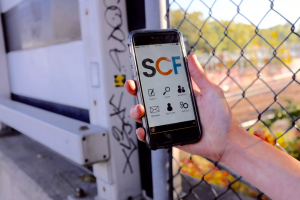Agencies across state, local and federal governments have begun leveraging public-private partnerships to solve problems that they can’t efficiently solve on their own. Whether it’s an IT tool or a platform, the private sector has a lot to offer government to ensure they are effectively driving agency missions.![]()
 However, this partnership between sectors doesn’t happen on its own. Both public and private organizations need dedicated individuals who are ready to bring the best of their sector to the other one. While we often hear how this works from a govie perspective, we don’t often explore how this looks from the private sector—especially a millennial working on public-private partnership in the private sector.
However, this partnership between sectors doesn’t happen on its own. Both public and private organizations need dedicated individuals who are ready to bring the best of their sector to the other one. While we often hear how this works from a govie perspective, we don’t often explore how this looks from the private sector—especially a millennial working on public-private partnership in the private sector.
One millennial working tirelessly to promote partnership between the two sectors is Caroline Smith. As the Co-Director of Marketing at SeeClickFix, she works to ensure that local governments are able to leverage the capabilities of SeeClickFix’s platform. Smith spoke with First 5 to explain how she fosters a culture of collaboration.
SeeClickFix is a mobile app that empowers citizens to report quality of life issues directly to their city government. The app also provides a backend CRM for the government to file, manage and track those reports. Smith’s role in the company is to tell the stories of governments that are leveraging the application. “I basically just tell stories all day,” she said. “I share the stories of brave and excited cities who are taking a chance on innovation and are invested in being responsive.”
Through her role Smith has been able to see the unique impact that public-private partnerships has had on citizens. For example, Smith explained that there was a busy intersection in New Haven that didn’t have a crosswalk. As a result, a number of accidents had occurred as pedestrians tried to cross the street. After a woman was struck at the cross walk, residents of New Haven began reporting the lack of a crosswalk through SeeClickFix and the government responded by installing sidewalk bumps, flashing lights, pedestrian signs and painting a crosswalk.
Being able to promote transparency from the private sector in the public sector is one of Smith’s favorite things about working with the public sector. “The coolest part of working with the public sector is being able to offer them affordable assistance, whether it’s communication or a tool that makes lives better or one that makes their work more transparent and visible,” Smith said.
Despite the value that she derives from helping to empower government employees and citizens, Smith admitted that fostering good partnerships does not come without challenges. She offered three things to keep in mind as millennial employees work across sectors:
- Manage your time. Millennials, especially ones working to foster collaboration across sectors, can be quick to say yes to every opportunity in order to make a difference. However, Smith said that this is not a sustainable way to work or live. “In any effort you take on, you want to exclusively only bring value to that thing and sometimes that means saying no to things or asking for help,” Smith said. It is pertinent to realize that when you are trying to promote cooperation between sectors, you have to be willing to take things off your own plate and collaborate with others.
- Resist urgency. Smith also recommended resisting the urgency to act. A lot of times an issue or challenge will come up and you immediately want to react, but this knee jerk reaction is not always the most productive or effective. “When we are not resisting urgency, we sometimes don’t make the best decisions,” Smith said. “But a lot of the time, good decisions are built on thought and good relationships that you can’t put a band aid on or rush into.” Instead, try being purposeful in your actions and build trust, resisting the urge to fix things immediately.
- Promote transparency. Finally, it is critical that transparency permeates every aspect of your work relationships. “Stick to your values of openness and transparency, even if that means a deal or a partnership falling through,” Smith explained. While being transparent can initially be difficult, it pays off in the long run by promoting trust and allowing future partnerships a good platform to be built upon.
Ultimately, public-private partnerships are just that—a partnership. Smith emphasized that the private sector has to work with the public sector, not for them. Smith concluded, “It’s really important to have the mindset of working not for governments but with them. It’s healthiest for the citizens and yourself and it’s the only way the project will be successful.”
If you love hearing millennial stories straight from the source, check back the first Thursday of every month for a new inside perspective from young govies. If you want to be our next featured millennial, email us here.
This post is part of GovLoop’s millennial blog series, First 5.





Leave a Reply
You must be logged in to post a comment.